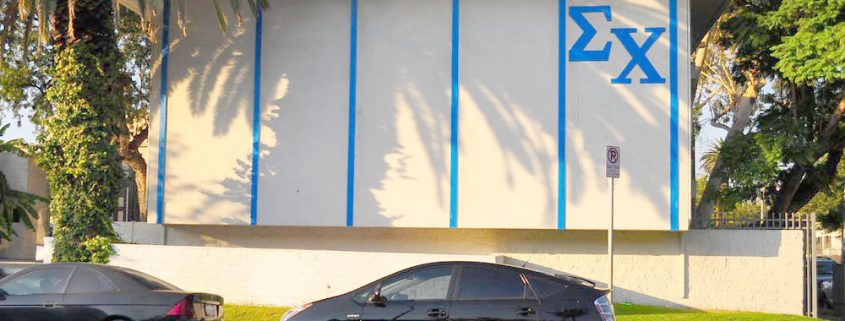Greek organizations file new complaint in deferred rush suit

(Daily Trojan file photo)
After first filing suit against USC in June 2018, five Greek life organizations amended their initial complaint against USC’s deferred rush policy on Aug. 23. The suit alleges the policy has “no factual basis” and is discriminatory toward Greek life. The amendment follows the Los Angeles Superior Court’s decision in May to retract its support of the University’s policy.
The Kappa Alpha Theta sorority and Sigma Chi, Beta Theta Pi, Theta Chi and Tau Kappa Epsilon fraternities claim the policy violated students’ First Amendment rights for freedom of association.
According to the suit, the policy, which restricts all first-year students from Greek recruitment until 12 credits are completed at USC with a GPA of at least 2.5,allegedly unfairly delays students from joining a Greek organization, since no other student organizations are barred with this restriction.
The L.A. Superior Court ruled in favor of USC last November, claiming the University has the right to create and enforce the policy.
In a statement to the USC community in 2017, former Vice President of Student Affairs Ainsley Carry defended the University’s decision to implement the policy and referenced the prevalence of deferred rush policies adopted at other top research institutions, such as Stanford, Harvard, Yale and Tulane.
“We believe that fraternities and sororities have a positive impact in the lives of our students who participate,” the University wrote in a statement to the Daily Trojan in May 2019. “We want to ensure our students are successful both in academics and Greek life. That is why we stand behind our policy and will continue to vigorously defend it when this case is heard once again in Superior Court.”
After reviewing the case, the court reversed the decision to further examine the plaintiff’s claim that the University enacted the policy to discriminate against Greek life organizations on campus.
“At this stage of the case, we must take as true plaintiffs’ allegation that the deferred recruitment policy was enacted with ‘no factual basis’ and merely as a discriminatory attempt to place fraternities and sororities ‘in a disfavored category,’” the Appellate Review stated.
Since the reversal, the plaintiffs presented a primary amended complaint to defend their position. This included the arguments made in the original lawsuit and a new evaluation of the deferred recruitment process.
“The recruitment process itself is an important avenue by which fraternities and sororities inculcate values, socialize with potentially new members, and form lasting friendships,” the complaint reads. “During this process, fraternities and sororities constantly engage in expressive activity with these potential recruits. In addition, during the recruitment process, individual students who ultimately join fraternities and sororities engage in expressive activity with sororities and fraternities.”
Nathaniel Haas, one of the attorneys representing fraternity and sorority members, said it’s important to acknowledge the organization’s claims.
“One of our requests is for USC to produce any evidence that this policy actually will benefit students in an academic or social way,” he said.
Haas said the First Amendment protects freedom of association, which permits the ability to gather with individuals who share similar beliefs and engage in activities teaching and celebrating them.
The court acknowledged the First Amendment rights of both students and the University but yielded importance in USC’s favor based on the values academic endeavors carry.
In the initial complaint, the plaintiffs alleged that the policy would cause financial stress for Greek life organizations. They also said it would be more difficult to assess recruits because of the larger recruitment class size would limit the amount of personal time given to each student.
According to the lawsuit, Greek organizations serve as a potential outlet and support system for students who may experience feelings of loneliness and isolation. The policy denies students access to these outlets during the time where these issues develop most prominently.
The analysis of the complaint led to the court ruling in USC’s favor by claiming the plaintiffs had not provided significant evidence to prove the deferred rush policy violates students’ and organizations’ freedom to engage in expressive activity.
According to Haas, the plaintiffs have about 30 days after filing the amended complaint to gather evidence supporting their claims.

